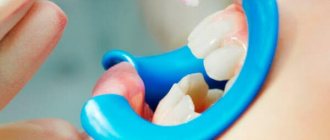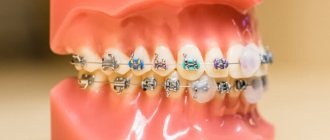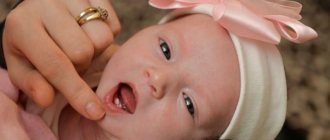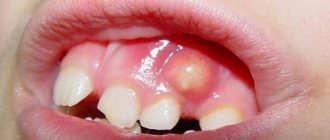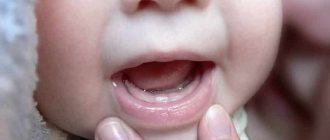Why are children so afraid of dentists?
Children's fear of visiting dentists has good reasons:
- Experience . Many children, having visited the dentist at least once, begin to feel afraid of dental treatment.
- High sensitivity to pain. Children are afraid of any intervention and try to isolate themselves from visiting a doctor.
- Negative talk from others . If parents or other people talked about their feelings during dental treatment in an unattractive light, the children will definitely remember this.
- Fear of the unknown . Most children have a negative attitude towards new procedures.
- Fear of anesthesia injections and dental devices that make a sound that is frightening even for adults.
- The appearance of the doctor - often at an early age, children are afraid of people in white coats.
In childhood, dental treatment most often begins at 2 years of age with the use of painkillers. If there is an urgent need for intervention at an earlier age, each case is considered individually.
At what age can a child’s teeth be treated?
No matter how hard dentists try to “educate” parents, some mothers stubbornly believe that there is no need to treat baby teeth, since they will fall out anyway. However, experts never tire of repeating that a tooth that has begun to deteriorate is:
- source of infection in the mouth;
- the possibility of an unpleasant odor;
- aesthetically unattractive.
And if you can come to terms with the last two points, then the first can lead to many dangerous consequences in the form of a decrease in the baby’s immunity, the occurrence of acute respiratory diseases, pharyngitis, laryngitis, as well as diseases of the stomach and intestines.
In addition, a destroyed baby tooth can “transmit” the infection to the permanent tooth germ, as a result of which it may grow damaged or not grow at all.
One of the serious complications of untreated caries is pulpitis of the baby tooth - it will inflame
a serious disease of internal tissues, the symptom of which is acute pain. Pulpitis has several forms and stages, the most complex of which can lead to tooth extraction.
This is why it is so important to stop the decay of baby teeth in time and preserve the child’s overall health. And treatment should begin from the moment the first alarming symptoms are detected, regardless of the baby’s age.
What parents should not do: basic mistakes
Often parents themselves become to blame for the fact that their child is afraid to go to the dentist. Here are the mistakes they make:
- A small patient finds out about a dentist only after discomfort appears in the mouth. In this case, on a subconscious level, he will associate the dentist with something unpleasant. It would be good to tell your child as early as possible, before problems appear in the oral cavity, that there is a doctor who can help make teeth beautiful and healthy.
- Parents do not explain the reasons why it is necessary to see a doctor. Many adults believe that an unexpected trip to the dentist will help in the fight against fear - this is a big mistake. In the future, such an act may develop into a phobia of the dentist.
- A small patient is forcibly held in a chair and forced to open his mouth. “You won’t be nice by force” - if you force a baby to be held in a chair, he will not only be afraid of dentists, he will develop hatred for them, and maybe for all doctors.
- Parents deceive the child by telling him phrases like “the doctor will just take a look,” although in fact there is treatment to be done. Such an act will cause distrust of parents and doctors.
To ensure that the baby does not resist treatment, it is necessary to approach the problem correctly.
What to do if a child is afraid to have their teeth treated: dentist secrets
The dentist tells us how to rid a child of the fear of the dental office.
Taking your child to the dentist is not an event for the faint of heart. Many parents worry almost more than their children, also because they know: if the child is afraid of the dentist, then even the most harmless examination can turn into a difficult ordeal.
Evgenia Shikova, an orthodontist, a doctor at the Boston Institute of Aesthetic Medicine, told Letidor what the causes of childhood dentophobia (fear of dental treatment) are, how to overcome it, and even shared several professional secrets.
In general, the most common cause of children's fear is past negative experience : the child has experienced some painful treatment and is now naturally afraid of its repetition. This applies to children of all ages, and adults often put off visiting the dentist until the last minute precisely because of this.
The second reason is the fear of the unknown , which arises in a child when he is taken to the dentist for the first time, or when he has already been to the doctor’s office, but, for example, he found himself at an appointment with an unfamiliar doctor or instead of a therapist he came to an orthodontist.
As practice shows, children often react negatively if the doctor begins his work directly with an examination of the oral cavity.
For dentists, this is a familiar routine, as well as for adult patients who already understand what they came for. And for a small child this is unexpected.
And since the oral cavity is a zone of personal space, the doctor thus violates the boundaries of the small patient.
Some parents do not attach importance to this, believing that the child “does not understand anything,” but this is not so. A gross invasion of personal space can lead to the fact that, as an adult, a person will avoid any doctors at all costs.
So, the child has never been to the dentist, but is already scared. What to do?
Do not force an inspection under any circumstances!
This will cause even greater fear in the child, which he will then experience constantly in the dentist's chair.
Very young children 3–4 years old should be seated in the dental chair with a parent. Sometimes it is permissible to carry out the very first examination even without gloves and tools, so that the child is not frightened by objects that he sees for the first time in his life.
If upon visual examination it is clear that there is no obvious pathology, then the appointment should take place in the form of an introduction. And already at the next preventive examination, you can pick up the instruments (mirror, probe, etc.), show them to the child, and tell about them.
It is important to take things gradually.
There is no need to carry out any procedures on the first visit, especially if the child is very frightened or has had, for example, injuries due to which his teeth were removed.
After this, the baby will form the idea that a white coat is a sign of danger and pain.
Why is the dating stage so important? The doctor shows the child that, firstly, he will always do only what he said, and, secondly, he will never break this promise.
If a dentist tells a young patient that he will not remove a tooth, then he should definitely keep his word.
This is the most important aspect - establishing a trusting relationship between the child and the doctor. You cannot deceive the baby, even if the parents insist on the procedures. If trust is established, subsequent treatment is much smoother.
At this age, it is also important to create a trusting relationship and respect for the young patient. Firstly, you should always tell and show what will happen now, what the doctor intends to do and for what purpose.
Secondly, it is imperative to ask permission for all manipulations - for example, examination of the oral cavity. These elementary actions help the child understand what will happen to him, and most importantly, why.
This means the fear of the unknown is eliminated.
Teenagers aged 12–15 usually come with their parents. During the first conversation, it is very important for the dentist to listen to them first, and then ask approximately the same questions to the patient himself and listen to his version.
After all, the goals of parents and the desires of children may well differ. Let's say they come to the orthodontist so that their child has straight teeth and a beautiful smile.
But it is equally important to find out whether the child is ready for treatment.
It is especially important to have a constructive dialogue with teenagers about treatment and all manipulations. When they understand the meaning of what is happening, their interest in the process and result of treatment increases.
If the dentist sees that for some reason the child is not ready or does not want to be treated, then it is better to postpone the procedure.
Since orthodontic treatment is very long, it makes sense to wait 3 months, six months or even a year.
If the doctor gives such advice, then parents should not insist on immediate treatment. During this period, the child can improve oral hygiene, grow physically and emotionally, and this time is also needed for the formation of the dental system. Then the treatment will be calm and fruitful.
You can’t scare a child: “If you behave badly, I’ll take you to the dentist!” It is best to explain that visiting the dentist is an important part of life, and it should be done periodically to avoid very severe pain.
For example, we can say that if you endure pain for a long time and do not go to the doctor, then the treatment will be even more unpleasant and longer.
But with regular examination, even if nothing bothers you yet (that is, only a doctor can detect signs of the disease), the treatment will be faster and more pleasant.
How to prepare your child for the visit? Here we must take into account the difference between the sexes.
Boys are most often raised as future men who are not afraid of anything, and girls sometimes need longer and gentler persuasion.
But any child needs encouragement - with a toy or sweets, within reason.
This is very important for children - a reward for good behavior. In this way, parents reinforce positive behavior and stimulate the child’s desire to continue to behave bravely and politely.
In some dentistry, children are shown cartoons during treatment, and sometimes parents are afraid that this will interfere with the doctor. Actually no, on the contrary, it allows the doctor to work calmly, quickly and efficiently.
Most often, children are offered different cartoons to choose from, and they prefer those they already know.
The child is captivated by what is happening on the screen and pays less attention to manipulations with the teeth.
Viewing helps to find common ground between the doctor and the child - young patients often enthusiastically retell the story of what they saw to both the doctor and their parents.
This way, not fear arises, but interest, and the understanding that a dentist is not only not scary, but even interesting is cemented in the child’s mind.
Shutterstock.com
Source: https://letidor.ru/zdorove/chto-delat-esli-rebenok-boitsya-lechit-zuby-sekrety-stomatologa.htm
How to prepare your child for a trip to the dentist: effective methods
You need to convince your child to have his teeth treated correctly; it is important to be well prepared for this. First of all, you should tell who the dentist is and what he does, but you don’t need to do this strictly. It is also important to prevent children from communicating with people who can talk about possible pain in the dental chair. It is better to take the advice of psychologists on how to treat teeth for children even at 2 years old.
Games: having fun introducing your child to the dentist
Play is a way for children to understand the environment, so the use of this technique allows not only to overcome fear, but also to set the mood for a repeat visit to the dental office.
Parents can use the following game combinations:
- cure the teeth of a plush toy or doll: in this case, children should take turns with the toy in the role of the patient;
- joint viewing of cartoons in which children have their teeth treated;
- Dental treatment for all family members ; children should also act as doctors.
Games leave a positive impression of the procedure, and the dentist will not seem like a formidable doctor who can cause harm.
Let's not forget about our own example
One of the most effective methods is the own example of one of the parents. To do this, you need to take your baby with you for an oral examination. At the same time, the adult must maintain a positive mood.
It will also be effective if, before the little patient sits in the dental chair, mom or dad sits in the chair in a playful way and the dentist examines the mouth. The parent should be in high spirits.
Other effective ways
If a child is afraid of the dentist, the following methods can be used:
- Make a trial trip to the dental clinic . To do this, parents must give a tour and prove that there is nothing wrong with visiting a dentist.
- To further reduce your fear of the dentist, you should regularly conduct preventive examinations of the oral cavity by a specialist. For patients under 2 years of age, such an examination is carried out once a year. Patients over 2 years of age should come for an appointment every six months - this will help develop a habit and in case of illness there will be no fear of visiting a doctor.
- If a tooth aches suddenly, parents can tell a story where the main character is a sore tooth that needs urgent medical attention. At the same time, you should not hide the actions that will be performed by the attending physician.
When visiting a doctor, you can distract your child with interesting stories; while waiting for a doctor’s appointment, children can take up drawing - this will reduce stress and create a positive mood.
Our trip to the pediatric dentist: how we took our son to have his teeth treated
Neither adults nor children like to go to doctors, much less to dentists.
And for many parents of children aged 5-6 years, the question arises of how to persuade their child to go to the doctor, even for a banal examination, which is especially difficult if they have already had a negative experience with dental treatment.
One fine day, my 5-year-old son had a toothache. I promptly made an appointment at pediatric dentistry and began mentally preparing the child for the treatment procedure.
Reasons for fear of the pediatric dentist: why was my son so afraid to have his teeth treated?
When I told my son that we would soon have to go “check” his teeth, I was met with unexpected hysteria, which surprised me quite a bit. The child suddenly burst into tears and shouted, “I don’t want to!” Will not go!". And all this happened taking into account the fact that we had already visited this doctor several times, although the last visit was quite a long time ago.
After waiting for the child to calm down, I began to find out the reason for this reaction.
"Why do you say that? We’ve gone to the dentist before, haven’t we?” - “They’ll hurt me there!” - "How do you know? After all, we had our teeth checked before and everything was fine. And no one hurt you." “My grandparents told me about this in kindergarten.”
Everything turned out to be extremely simple. “Good” friends and relatives have already talked about what the child can expect, causing him a lot of negativity even before going to the doctor.
In principle, there are several simple and banal reasons why the dentist causes chilling horror in children.
- Negative experience. If the child’s teeth were previously treated using less than humane methods, for example, without pain relief, or the doctor was not attentive and careful enough. This happens when the disease is advanced, and a significant amount of money is required for pediatric anesthesia. Therefore, in this situation, it is better not to skimp, but to borrow or allocate the necessary amount for treatment so that the child is not left with psychological trauma. You should also choose a good dentistry, where doctors treat children specifically.
My friend had this experience when her 4-year-old daughter needed treatment for 2 pulpitis, but there was no money for anesthesia. They had to do everything “for profit”; the child was held by the mother and two orderlies. Result: the child began to be afraid not only of dentists, but, in principle, of all people in white coats.
- Conversations with relatives. Very often a child is afraid of something he doesn’t even know. Parents and grandparents begin to persuade out of the kindness of their hearts: “Don’t be afraid. It won't hurt you." You should always remember that the subconscious of almost every person does not perceive the negative particle “NOT” well. As a result, the child perceives all persuasion exactly the opposite and begins to be afraid, without even visiting the dental office.
- Stories from friends. In kindergarten, a child may be frightened by the stories of those children who had an unpleasant experience with dental treatment. In addition, children tend to exaggerate all events, so even a routine dental examination can be terrifying.
How we persuaded a child to visit the dentist: proven methods
After thinking carefully, I developed a whole strategy on how to smooth out the negativity when going to the dentist:
- A game. I bought a children's dental kit and offered to treat the teeth of a teddy bear, explaining each action: what this or that instrument is for. My son was very interested, he especially liked the resemblance of a dental head mirror, which was made from a piece of cardboard and foil, and counting teeth on a printed poster.
- Introduction to the dental clinic. I agreed in advance with the clinic administrator that we would just come with the child, sit, look around and leave without going into the office. Fortunately, they met us halfway. Pediatric dentistry provides a lot of distracting posters, play tables and toys so that the child can relax. My son was a little nervous at first, but I firmly promised him that we were going to meet new people. The meeting went well.
- Gift as compensation. I understood that a child would endure suffering and experiences more easily if he knew that a pleasant gift awaited him at the end. Naturally, this gift should not be edible. Knowing how much my son loves to ride horses, I promised him after going to the dentist to organize a day to celebrate healthy teeth with a ride on horseback. I agreed in advance with the equestrian club on the day on which we were supposed to go to the doctor.
- Conventional signs. When my son sat down in the dentist's chair, I explained to him that it would be impossible to talk, but if he felt unwell or wanted to take a break, he would raise his handle up. This arrangement helped us a lot during the treatment procedure itself.
- Patience. Parents should show all restraint and patience during the procedure and not lash out at the baby if he is capricious. After all, even adults are afraid of dentists, let alone a small child, who may be scared anyway. He will behave much calmer when a loved one is nearby to encourage him.
Of course, going to the dentist is not the easiest procedure for both children and parents. But everything can be overcome if you carefully think through all the nuances. For us, going to the dentist was not without tears, but my son was clearly convinced that this was necessary for his own health.
Parents' mistakes: what should you not do when going to the dentist with your child?
Unfortunately, many parents, having taken their children to the dentist once, instill negativity in them and undermine trust by committing erroneous actions:
- The effect of surprise and lack of moral preparation. Many people take their children to the dentist without warning them about it, precisely because they are afraid of their unexpected stubbornness and panic. This is not entirely fair to children. This behavior can violate the child's trusting relationship with the parent.
- Threats. There is no point in trying to scold a child for being afraid and unwilling to have their teeth treated. This can turn into real hysteria during the procedure. And it is not a fact that in such a situation it will be possible to fully cure a diseased tooth.
- The promise of the impossible.
A child may demand as a gift for a postponed trip to the dentist something that the parents cannot give. For example, a very expensive toy or sweets that cannot be given on the day of treatment. Reckless parents can promise all this, only the child agrees to go.You should always keep your promise to your child and agree in advance to fulfill it.
- Let everything take its course. To save nerves, parents can simply leave the child alone with the doctor and leave the office.
But this will only frighten the baby even more, left without parental support. This behavior can negatively affect relationships with parents.
Even though dental treatment was an unpleasant experience for my son, he no longer has any fear in the dental office. This is because after all our teeth were treated, I explained that now we would regularly go to the doctor to check that everything was okay. The son understood well that the subsequent trip would simply be an inspection.
An important role was played by the fact that I did not try to deceive the child, promise him something that could not happen, but calmly explained in an accessible language why and why all this was necessary.
And most importantly, I firmly fulfilled all my promises that I made to my son.
Now he knows for sure that if we are going to the doctor, he can ask mom any questions, which she will answer honestly and without hiding.
Sincerely, Lyubov Sozykina
You may also like
Source: https://www.OdnaDama.ru/zdorovie/nash-poxod-k-detskomu-stomatologu-kak-my-vodili-syna-lechit-zuby/
Select sedation
Recently, dental treatment under sedation in children has become popular. Sedation is a special relaxed state into which the child is immersed under the influence of special substances.
In it, the baby is aware of everything, but does not experience stress and does not feel pain. The treatment is easy, and after it there are pleasant memories of completely painless interventions.
Often one session under sedation is enough for the child to stop being afraid of dentists.
Sedation in children
Reviews
Dentophobia is a common phenomenon, however, and it can be dealt with. There are many recommendations given above, following which you can help your child overcome his fear and teach him to take care of his teeth and oral cavity every day.
Source: https://stomatologiya29.ru/detskaya/kak-ugovorit-rebenka-lechit-zuby-sovety-psihologa
If hysterics started in the hospital
If hysteria occurs during a visit to the hospital, you need to calmly talk to the baby, you can promise a reward after visiting the doctor.
If a child does not allow his teeth to be treated, you should not yell at him or compare him with others - this will make the situation worse.
You should always have a favorite toy or book with you that can distract you from people in white coats. To help your baby calm down, you can tell an interesting story where the main role is played by children who are not afraid of doctors.
A child may behave unexpectedly at a dentist appointment. If he cannot calm down, it is necessary to take him out of the office and divert attention from the topic of visiting the doctor. When he calms down, you can persuade him to see a doctor, and be sure to praise all the baby’s actions. This will help you feel confident and reduce your fear of the unknown.
Why do you need to treat baby teeth?
As already mentioned, many parents do not pay enough attention to the problems with their child’s baby teeth. But this is wrong, the reasons are:
- if a damaged baby tooth is removed too early, the neighboring ones will begin to shift, as a result of which the permanent ones will grow crookedly and an incorrect bite will appear;
- when teeth are destroyed to the point of “stumps”, the tongue rests against the palate when speaking, which causes problems with diction, which will be difficult to correct later;
- if the rudiment of a permanent tooth erupts with a tooth affected by caries, it can grow affected;
- missing teeth can cause problems with chewing and digestion, and sometimes problems with the gastrointestinal tract appear.
What to do after: consolidate the result
After the first visit to the dentist, dad and mom should also behave correctly.
After leaving the hospital, no matter how the baby behaved, parents should praise him and emphasize how brave he was.
It is important to highlight the fact that nothing terrible happened during the treatment, and the teeth became strong and healthy. If the child wants to express his opinion, he should not interfere with it or argue.
Many children agree to visit the dentist if their parents promise to buy new things or a toy. After leaving the office, you must fulfill your promise, otherwise this method of persuasion will not help next time.
After visiting the dentist, you can go to the zoo or the circus - this will help lift your spirits. After returning home, it is important to tell family members how brave the children were during treatment.
Cartoons about teeth for little ones
Since my son and I are trying to play with the topic of hygiene from all sides, I decided to collect everything related to it. If a child, for example, loves Masha and the Bear, but the idea of an educational video where they teach how to brush their teeth correctly is alien to him. Such a child, having watched with his mother how a poor girl suffers from a toothache, will more easily agree to watch cartoons chosen by an adult. And also, quite likely, they will watch them more carefully. Therefore, dear parents, choose your child’s favorite character for the first viewing. Let's begin!
Fixies
Most kids adore TV series about these small, but so smart heroes. In this series, children will learn how an electric toothbrush works and what not to do with it.
Queen Toothbrush
I think this story is familiar to every mother and every father, because it went with us through our entire childhood. It was filmed in 1962 and is the best quality video I could find. Let me remind you that it talks about a girl who did not want to bathe, wash her hands, comb her hair or brush her teeth. I would say that this fairy tale is about hygiene in general, but it definitely wouldn’t hurt for kids to watch it.
Tari bird
A wonderful cartoon about a crocodile who did not keep his mouth clean and got what happens to all dirty people - a toothache!
Sweet life
As I wrote above, Masha is an example of children's logic; it is understandable to kids. After watching, I advise you to discuss the girl’s behavior.
Lu Lu discovers the world
A little girl named Lu Lu does her evening routine without ceasing to play pranks. She scares her dad and forgets to turn off the water in the bathroom, but the main surprise awaits her mom.
Mister Man
Mr. Rude, Grumpy and Sloppy show the kids how not to behave and what not to do. It is better for adults to be nearby during viewing to discuss the behavior of the characters with the child. Roger Hargreaves is the author of the book on which this cartoon is based.
Motya the hippopotamus
Cartoon about brushing teeth for very young children 1.5-2.5 years old. It lasts less than a minute, there is practically no plot development. But many little ones may fall in love with a cute hippo and show a desire to imitate him.
About a naughty boy
This fairy tale made a double impression on me. At first it develops quite dynamically, but its end is unexpected and rather “crumpled”. But this is the opinion of an adult, but my son liked it.
We choose a good specialist for our child
You need to approach the choice of a dentist for your child with all responsibility, because a lot depends on him in the child’s mood and the effectiveness of treatment. When choosing a good pediatric dentist, you need to consider the following features:
- Rating of the medical institution where the specialist works. Professionals are in great demand, so for children you should choose clinics with a high level.
- Availability of a special room for the treatment of children. In such offices, as a rule, there are special objects to distract attention, and the interior of the room is more suitable for children.
- Availability of modern equipment that will speed up the treatment process.
- The dentist's ability to work with pediatric patients. An experienced doctor will be able to distract and interest the patient. He knows how to open a child's mouth, perform an examination, and even how to treat the most serious oral problems in restless patients. Reviews will help you evaluate the doctor from this side.
- The specialist’s desire to communicate with parents. It is very important to consider the doctor's politeness in the conversation, as well as the provision of additional information about oral care.
- Patient reviews. Before deciding on a clinic and dentist, you need to study reviews, both positive and negative.
For young patients, you should choose specialists who conduct a playful examination method, which reduces stress and eliminates future fear of dental treatment.
The video shows how some doctors treat the teeth of young patients:
How to persuade a child to have their teeth treated, advice from a psychologist
Psychologists believe that specifically persuading a baby to have their teeth treated is a futile task and does not give any effect.
Any persuasion gives your pet reason to suspect that something not entirely pleasant is waiting for him behind the doors of the dentist.
A visit to a dentist, even for preventive purposes, requires psychological preparation of the child, and the sooner you start doing this, the better it will be for him.
It is no secret that parents are role models for children in every detail, so it will be useful to convince the child that regular visits to the dentist are a necessary attribute of adult life.
It will be better if the first visit to the dentist does not evoke unpleasant memories in the child; in this case, all subsequent visits to the dental office will take place without whims and will give the children only positive emotions, or the painfulness of the procedures will be weakened by anesthesia.
You should never discuss other people's dental treatment experiences, especially unsuccessful ones, in front of children. There is also no need to use negative epithets and verbs “to tear”, etc. in relation to dentists. It will do nothing to strengthen the already negative aura that has formed around dental offices and makes them so undesirable for young patients.
It’s a good idea to give your baby a gift, such as a toy, during a visit to the doctor. And it’s better to let the doctor do this, thus establishing friendly relations with the little patient. You will see that the child will even look forward to the next trip to the hospital and be less afraid of it, the main thing is that the cost of the gift does not give the child a reason to blackmail his parents.
If you really have to treat a toddler’s teeth, you need to do it openly, without deceiving him that the procedure will be absolutely painless. By this you persuade, first of all, yourself.
Your fear for your child inexplicably spreads to the baby and he, despite all your persuasion, begins to act up.
By talking about possible unpleasant sensations, you unconsciously set up the baby to endure real pain, which he is naturally afraid of, regardless of whether anesthesia is used or not.
Psychologists also recommend keeping the date of your visit to the clinic secret for as long as possible. Or make a visit in a veiled form. Sometimes the expectation of trouble is worse than the trouble itself.
To persuade your baby to go for dental treatment, you don’t need to insist too much; it is important that he voluntarily agrees to this procedure, and not do it to please you. You should not make promises that it will consist only of a superficial examination and that it will not hurt or that anesthesia will be used.
Faced with reality and realizing that he was deceived, the child will become even more afraid of visits to the doctor, it will be more difficult to persuade him to go to the clinic, and worst of all, he will lose some trust in medical workers and in mom and dad.
The best advice is to be extremely frank with your child in such a situation.
The ability of a child to be persuaded to have his teeth treated largely depends on the qualifications of the clinic staff. It is preferable if competent and kind doctors treat your teeth in a calm atmosphere and do it with love.
Dental offices intended for children are often equipped with equipment for playing animated films, games and toys, and teeth are treated mainly under anesthesia.
Many private employers require that doctors working with children be able to effectively and quickly cope with fear of the dentist and stop being afraid of him.
Many parents are embarrassed by the high prices in private dental offices, but treating a child’s dental problems resulting from unprofessional services will cost more, and it will be easier to persuade a child to have their teeth treated in a private clinic. Trying to save money on children’s health will not lead to anything good, but will only worsen the baby’s condition; this should not be done.
“How to teach your baby to brush his teeth”
RESULTS regurgitation
Before trying to persuade a child to have their teeth treated even under anesthesia, parents themselves need to overcome their fear of the dentist, or rather the pain that the child will not endure in the dental chair, perhaps even without anesthesia. Children tend to feel such fear. And there is practically nothing to be afraid of. Modern equipment and technologies used in pediatric dentistry allow most operations to be performed without pain. It's not just about the use of anesthesia. Special equipment and medicines that replaced the “terrible” drilling machines have significantly humanized the face of the modern dentist, so that there is no longer any need to persuade children to visit a modern dental office, where children have fun and willingly spend time and are not afraid.
If you are afraid of dental procedures, no matter whether they are performed with or without anesthesia, you can try to overcome it by personal example.
To do this, one of the parents will have to make a visit to the dental clinic; it is important that the child is present. Moreover, a visit to the doctor should be done in a cheerful and festive mood.
After you show your child the healthy and strong teeth that you received as a result of a visit to the clinic, it will not be difficult to persuade the child to follow you, because by doing this he will show you what an adult he has become and is not at all afraid.
At least, this is exactly the reaction most psychologists expect from children.
But still, financial incentives are the most effective way to convince a child to go for dental treatment, even if the cost is insignificant.
The important thing is that if a child was promised, for example, a toy after visiting the clinic, he must definitely receive it, and without any excuses. If this does not happen, then trust in the family will be lost for a long time.
A radical method that can be compared to a little blackmail is the case when the desired gift is given after, and not before, the baby has made a visit to the dental office, which the baby is so afraid of.
In all of these methods, it is important that the child independently consents to dental treatment. Any methods of coercion are unacceptable here.
The slightest use of force can permanently avert the child’s desire to have his teeth treated, if he had one before.
And they need to be treated, because any complications in the baby’s oral cavity lead to intractable diseases, the treatment of which will be expensive or do not give the expected results.
“How to prepare your child for a visit to the dentist”
In the video you will learn what to tell your firstborn so that he is not afraid to go to the dentist.
RESULTS: RESULTS: ¾Ð²ÐµÑ‚Ñ‹ Ð¿Ñ Ð¸Ñ…Ð¾Ð»Ð¾Ð³Ð° в Ð ¿Ñ€ÐµÐ¾Ð´Ð¾Ð»ÐµÐ½Ð¸Ð¸ Ñ Ñ‚Ñ€Ð°Ñ…Ð° боли
Almost all children, as well as most adults, fall into panic fear before an upcoming trip to the dentist. Therefore, many parents want to know how to persuade their child not to be afraid to have their teeth treated.
Little tricks
Recommendations from a psychologist:
- First you need to find the right pediatric dentist. Such a doctor has all the necessary equipment and dental preparations that can be used in treating children;
- when the child is small, he must be prepared for this process in advance. You shouldn’t make a secret of visiting the clinic; on the contrary, you need to tell your child about the upcoming trip to the doctor, explain that he will just look at his teeth, and if necessary, prescribe treatment;
- This option will not work with older children - speak openly. When the child begins to resist and cry, offer him some kind of reward for going to the dentist. This desire must be fulfilled before visiting the doctor: the baby must know that he is not being deceived;
- the result of such an event depends on mom and dad. When a child hears scary stories about the dentist, he may learn that it is not very pleasant. There is no need to talk negatively about dental treatment with children.
This is important to know: if a baby needs treatment, distract him the whole way by talking about how beautiful his teeth will be later. Even if you think that the baby will not understand your words, then know that the parent’s affectionate tone will instill confidence in him.
Preparation
Parents should calmly tell their child everything in order to create positive emotions:
- the child is prepared for the event 1-2 days in advance so that he cannot hear “terrifying stories” from friends;
- do not use the phrases: “it’s painless,” “there’s nothing to be afraid of,” or “you’ll have to be patient.” The child does not yet understand that he needs to be afraid of something. The emphasis should be on the positive outcome after visiting the dentist;
- do not claim that the dentist will not do anything;
- Imagine visiting a doctor with your child as an educational and entertaining event;
- Do not tell children about what is coming, if it concerns pain relief, filling or tooth extraction. Refrain from using phrases such as “drill”, “anesthesia”, “drill”;
- when the child asks about the procedure itself, tell the truth. Psychologists recommend saying: “maybe it will be a little painful or unpleasant,” you need to compare it with something familiar and assure him that it will be better later.
You can read about the causes of brown spots and plaque on teeth here.
Dentist recommendations for children, their fathers and mothers
Children's teeth are very fragile and require special care. To treat them as little as possible, you need to follow simple recommendations:
- brush your teeth twice a day every day under parental supervision;
- monitor the quality of the foods you eat: reduce your consumption of sweets, replacing this type of food with vegetables and fruits;
- develop the habit of rinsing your mouth after every meal;
- regularly undergo examination by a specialist;
- choose toothpaste according to the baby’s age;
- increase calcium levels in the body;
- Inspect your mouth for damage and plaque.
For school-age children, it is necessary to use dental floss and special mouth rinses.
The problem of visiting the dentist arises in the life of every parent. To ensure that children are not afraid of such procedures in the future, it is necessary to ensure proper preparation. Experience shows that after the first successful visit to the dental office, fear reduces its intensity and many children are more willing to make contact.
2 educational cartoons for children:
Cartoons about teeth for older children
Here I will list what we watched with our son, who is now 6 years 7 months old.
The Adventures of Adibu
The main character is a boy who can shrink and travel on a spaceship with a robot throughout his body. We are already familiar with this hero from the lesson about human skin. This is a series of educational cartoons on anatomy.
Good Doctor Dentist
The children came for a regular check-up, but the boy was afraid to sit in a chair. Then the good doctor told the tale of Zubland, how she was attacked by monsters and how she managed to free herself from them. Perfect for children 3+.
Once upon a time there was a Life - mouth
This is a French series about the organs of our body. We met him in a lesson about the human skeleton. If your child is just beginning his journey into anatomy, sit down next to him and explain who is who and what functions he performs.
Treatment methods for caries of primary teeth
The methods used in the treatment of caries in children depend on the type of tooth (baby or permanent) and the stage of the disease . The choice of the necessary method of treatment is made by the attending physician, since only he, after conducting a diagnosis, can determine how badly the hard tissues of the teeth are damaged.
Treatment of caries of primary teeth has certain difficulties associated with children’s fear of dental procedures. Therefore, if the stage of development of the disease allows the use of non-invasive methods, then they are chosen.
Non-invasive treatments
Initial and superficial caries of primary teeth in young children is treated with remineralization therapy, fluoridation, ozone therapy and silvering.
Remineralization therapy is one of the most common methods of treating caries in children . It is based on the artificial saturation of enamel with magnesium, calcium, phosphorus and other minerals. After a painless procedure, color spots disappear on hard tissues, tooth enamel becomes shiny and strong, able to withstand the destructive effects of pathogenic microorganisms.
Therapy is carried out over 10 sessions of 10-15 minutes until the molars are completely saturated with useful substances. Caries of primary teeth can be treated with this method in children of any age.
Fluoridation is used when caries of a baby tooth is caused by a lack of fluoride in the enamel, which manifests itself in the form of white spots on it. Apply the drug directly to areas where there are color deviations in hard tissues. The procedure is carried out with extreme caution, since contact of active substances with the mucous membrane can lead to a chemical burn. Therefore, it is recommended to eliminate caries of primary teeth in this way for children over six years of age.
With the help of ozone therapy, it is possible to treat caries of primary teeth in children of any age , since drugs are not used to destroy carious bacteria. The method is based on the use of ozone, which has a detrimental effect on microorganisms due to its oxidizing properties.
The procedure involves a short-term (10-20 seconds) supply of ozone under pressure to the affected areas of the oral cavity. In order not to damage the mucous membrane, special tips with ultra-thin outlet holes are used. The procedure is absolutely painless.
Treatment methods in different clinics
In free public dental clinics, treatment methods differ from what private clinics offer patients. So, in case of superficial caries, it is disinfected and “silvered” with a special silver solution.
If the case is more serious, then a standard filling is placed, and in advanced cases the tooth is completely removed. There are also specialized dental offices for children, where treatment is carried out under anesthesia and sedation. Before starting these procedures, you need to consult a doctor and undergo an examination by the doctor who will treat the child in the future. Parents also need to make sure that the clinic they choose has passed state control and has all the documents to provide treatment.
In private structures, children's caries are treated in the same way as in adults, but the material for fillings is chosen to match the color of the teeth. They are removed during pulpitis , but some modern clinics offer canal filling using specialized methods, thanks to which the tooth will develop and last until natural replacement.
In case of severe destruction, a special crown or removable denture is placed on the tooth in one visit. In some cases, when a tooth is removed, a retainer is placed in its place, thanks to which the neighboring ones are not allowed to move, and the place for the future permanent one is preserved.
Parents from an early age are required to teach their children proper oral hygiene and brushing their teeth. If you teach them this, you can avoid frequent visits to the dentist with your child.
source
